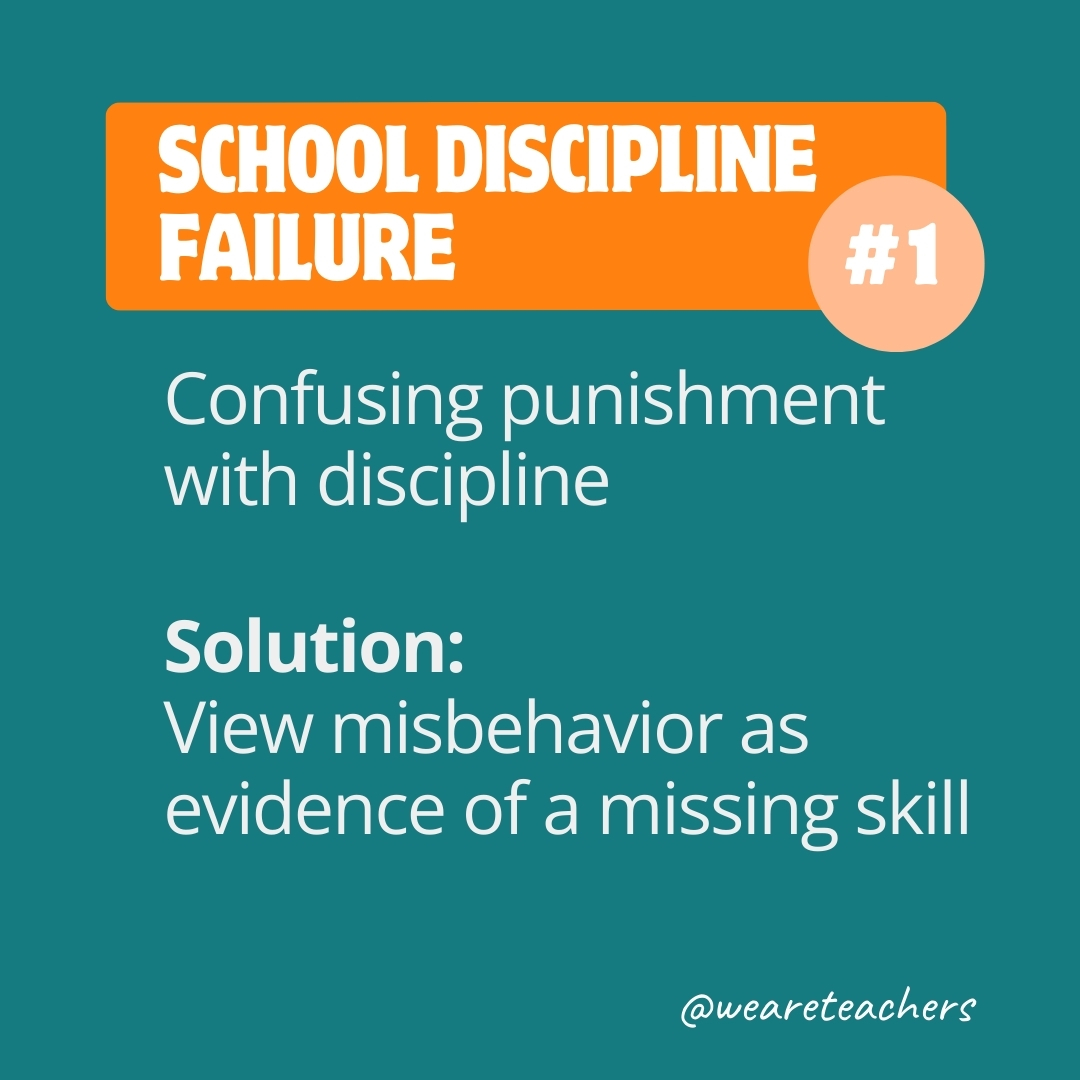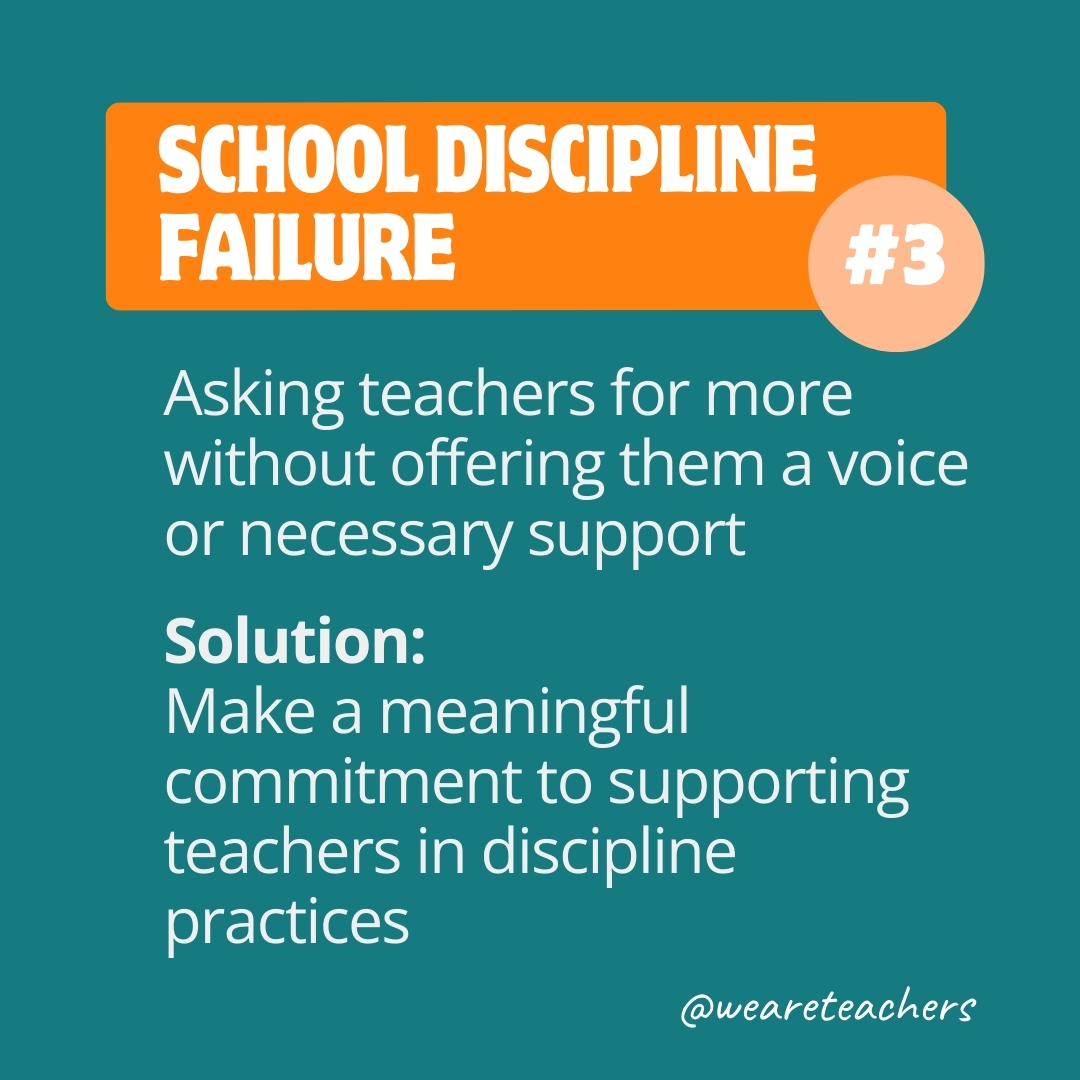This is How To Repair 3 Main Faculty Self-discipline Failures
Self-discipline is a scorching topic of debate on this planet of schooling. Faculties are continually revamping their insurance policies, looking for methods to raised serve all college students. However this usually appears like an train in futility, with extra college self-discipline failures than successes. Actually, 84% of faculties report that pupil habits is worse now than earlier than the COVID-19 pandemic, and total, faculties appear misplaced on this self-discipline shift.
That’s why packages like Aware Self-discipline, with greater than 25 years of acknowledged expertise and excellence, supply assist discovering the appropriate options. Aware Self-discipline equips academics and faculties to combine social-emotional studying, self-discipline, and self-regulation, permitting them to spend much less time policing habits and extra time instructing very important life abilities.
Take a better have a look at three of the largest college self-discipline failures, and discover methods to alter the story with free sources from Aware Self-discipline.

Faculty Self-discipline Failure #1: Complicated punishment with self-discipline
Image this: A pupil throws a handful of spaghetti at his pal throughout lunch out of anger, misses, and hits a trainer within the cafeteria. The lunchroom monitor writes up the incident, forcing the coed to apologize in writing to the trainer. The next week, the coed will get indignant once more, this time within the hallway, and rips some posters off the wall. They’re given a Saturday detention this time round, and the cycle continues.
In the end, everyone knows that punishments like this don’t change pupil habits. If the incident was a one-off from a pupil who doesn’t usually behave like that, the punishment may make them assume twice. However typically, a majority of these punitive measures simply don’t work, as analysis regularly exhibits. Aware Self-discipline stresses the necessity to reframe incidents like the instance above, shifting the main focus from punishment to the chance for studying it presents.
Misbehavior is usually proof of a lacking talent. This may be brought on by trauma or just because the coed hasn’t developed the required executive-functioning abilities to behave appropriately in a given state of affairs. Our job is to establish what our college students want and supply them the schooling and help essential to make completely different selections when positioned in related conditions sooner or later.
This doesn’t invalidate the necessity for self-discipline itself, it simply asks us to query our method and function in that act. Self-discipline means instructing children the significance of getting and following a algorithm, and serving to them perceive the results of breaking them. And that’s the place faculties are failing.
Answer: View misbehavior as proof of a lacking talent
Let’s take into consideration that spaghetti-throwing pupil once more, and think about what it would reveal about them. A teenager who lashes out after they’re feeling indignant appears to be displaying a necessity for self-regulation abilities. With out these essential abilities, no quantity of punishment goes to cease them from appearing out the following time they grow to be overwhelmed by anger. By recognizing this and dealing with the coed to develop this talent, we’re really addressing the underlying explanation for the habits we need to scale back and finally remove. Instructing the brand new talent turns into our main focus.
Once we think about penalties for the coed’s motion, we need to be certain they make sense, are honest, and don’t trigger any extra trauma. Possibly they might shadow a custodian for a day to allow them to see how their option to make a large number impacts another person. You will need to keep in mind that except the coed is receiving instruction on how they’ll reply in a different way, and extra appropriately, after they really feel that anger, no consequence is probably going to assist them select a greater response the following time their anger arises.
Be taught extra:

Faculty Self-discipline Failure #2: Adopting grading and habits insurance policies that masks destructive developments
No grade within the grade e book beneath a 50. Limitless time to show in work. Limitless retest alternatives. No official college penalties for habits except it’s violent. No penalties for failing or not attending summer time college. Does any of this sound acquainted?
Although insurance policies like these could make sense when used sparingly on a case-by-case foundation, they have been by no means meant to be utilized to each pupil throughout the board. However an increasing number of faculties have adopted these insurance policies, which make it appear to be a faculty has pupil habits and teachers beneath management. As an alternative, it’s doing everybody a disservice. These insurance policies decrease the educational and behavioral requirements for a complete inhabitants of a faculty, leaving academics to cope with the fallout and college students to marvel why they need to trouble delivering something in any respect.
Answer: Consider all college students are able to assembly excessive requirements
A Harvard Enterprise Evaluation research a couple of years again found one thing unbelievable: Individuals don’t rise to the extent of our said expectations. They fulfill what we already imagine about them.
In different phrases, after we robotically count on good issues from college students, they’re extra prone to obtain them. As educators, we now have to ship a message that claims we KNOW children can meet excessive requirements. Once we show confidence in them, they’ll develop their very own sense of self-confidence.
Be ready to accommodate particular person challenges as they come up, fairly than assuming them as a default. That is the place development mindset actually shines: encouraging college students to keep in mind that one mistake doesn’t imply failure. Present college students we already imagine in them, and so they’ll maintain themselves to increased requirements robotically.
Be taught extra:

Faculty Self-discipline Failure #3: Asking academics for extra with out providing them a voice or essential help
Lately, there’s been pushback in opposition to knowledgeable opinions, together with these of skilled academics. It’s time for the pendulum to swing again to the center, a spot the place academics and different authority figures are trusted, however the place the general public additionally feels empowered to ask questions of them. A spot the place leaders belief academics to assist form laws, coverage, and different selections that form faculties. And the place mother and father are neither the boss nor the client who’s all the time proper, however a associate in schooling.
For many years, we now have piled an increasing number of work onto academics with out giving them any extra help. Faculty-wide programs like PBIS and restorative justice are nice in concept. However they’re simply frameworks with out the sensible “how-to’s” that academics want in actual disciplinary conditions. Faculties that demand this type of buy-in and further work with out additionally creating time and house for his or her academics to do this work successfully are out of contact.
And that’s a disgrace, as a result of many of those modern packages actually do work after they’re used proper. However doing it proper means wholehearted buy-in and help from administration in addition to academics and workers, day-after-day and each step of the best way.
Answer: Make a significant dedication to supporting academics in self-discipline practices
This usually means a giant cultural change, giving academics a extra equal seat on the desk total. It means liberating up time in academics’ schedules for brand spanking new packages, fairly than asking them to squeeze in additional skilled growth on high of all the things else. Plus, it requires directors to really perceive and help the chosen packages, not simply pay them lip service. Principals, help workers, and different directors should be an energetic a part of the method.
Convey academics into the method when selecting school-wide packages for SEL and habits administration. Get their buy-in from the beginning, and provides them the instruments and help they should make packages work. Put aside devoted time of their common schedules for skilled growth and coaching, and provides them the every day help wanted to make your chosen program work. Search suggestions usually on how issues are going, and be keen to make changes as wanted.
Be taught extra:
Faculty Self-discipline Assets From Aware Self-discipline
Faculties guarantee college students meet their potential after they supply them the chance to course-correct in a protected and low-risk method. We’re doing a disservice to their growth and their personhood by appearing like children are too fragile for self-discipline or wrestle of any sort.
When you’re able to pursue actual change in your classroom, college, or district, Aware Self-discipline might help. Join a free account to benefit from 200+ sources like articles, printables, songs, movies, and extra. Then, discover their web site to study extra in regards to the packages, books, and different sources they provide, together with the traditional e book that began all of it: Aware Self-discipline by Dr. Becky Bailey.


